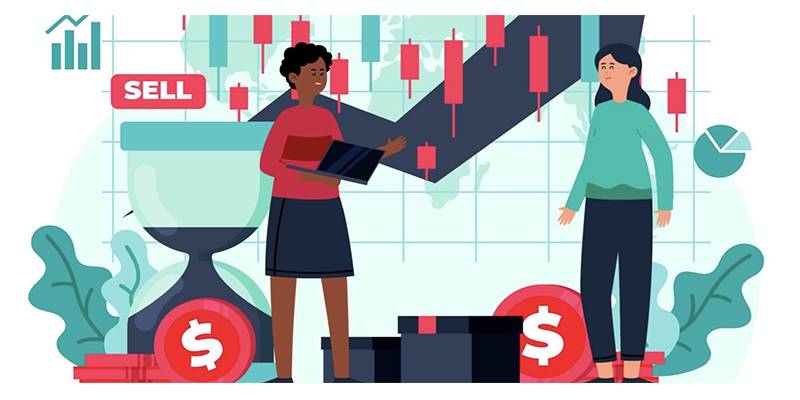The human economy

If we look at the present-day scenario of the very designs of the economies of the world irrespective of developed, developing or emerging countries, and their respective principles — we can see that we have reached an unjust, unsustainable, and extreme point. At the end of 2019, the total global wealth reached a staggering USD 360.6 trillion. However, 50.1 percent of the above-mentioned total wealth sits in the hands of the richest one percent on the globe. Growing inequality between wealth and income has been evident in almost every country over the last three decades.
Capital owners have consistently seen their returns outstrip economic growth as wealth continues to accumulate for the wealthy. Unfortunately, this extreme wealth growing in the hands of a few translates to power and undue influence over policies and institutions. Wealth in the form of small savings or agricultural assets such as land and livestock is critical for people living in poverty to be able to respond to financial shocks. However, estimates from Credit Suisse reflect that collectively the poorest 50 percent of people of the world have less than a quarter of one percent of global net wealth.
In January 2014, it was reported that 85 of the richest elites held the same amount of wealth as the bottom half of humanity. This was extrapolated from the net wealth and global wealth distribution data from Forbes and Credit Suisse, respectively. In January 2019, the growing concentration of the world’s wealth has been highlighted through the fact that 26 richest billionaires own as many assets as the 3.8 billion people who make up the poorest half of the planet’s population. Needless to say, this widening gap has been hindering the fight against poverty.
Interestingly, the wealth of more than 2,200 billionaires across the globe increased by USD 900 billion in 2018 itself, at an approximate rate of USD 2.9 billion per day. This 12 percent increase in the wealth of the very richest people was in stark contrast with the 11 percent fall in the wealth of the poorest half of the world. Let’s look at the role of corporations in driving the inequality crisis. Businesses are bigger than ever. In terms of revenue, 69 of the 100 biggest entities are now corporations, not countries.
The World’s 10 biggest corporations have combined revenues greater than that of the revenue generated by the governments of 180 poorest countries combined. A list which includes countries such as Ireland, Indonesia, Israel, Colombia, Greece, South Africa, Iraq and Vietnam, among others. The 10 most profitable corporations of the world made a collective profit of USD 442.6 billion in 2019 or approximately USD 59 for every person on the planet.
Businesses are key players in a market economy, and when they work to the benefit of all, they can be vital to building fair and thriving societies. But the bounty that the corporations have generated is mostly not shared; rather it works predominantly for the rich. The ever increasing pressure to squeeze costs and deliver proceeds to the people who own and run these corporations, and the rise of “super-charged shareholder capitalism” and “crony capitalism”, are driving a wedge between the top one percent and the rest.
The last 30 years have seen the dominance of a set of ideas centred on the expansion of markets and individualism. These have led to increased rights, mobility and freedom for corporations, and a corresponding reduction in collective action and government intervention in the economy. A firm belief in the power of markets, combined with a negative view of government intervention, is fundamental to neo-liberal thought. But left alone, the market is not the best way of organising and valuing much of our common life, and market forces will not ensure our common future.
Markets need careful management and a system to keep them in check so that it can work for the interests of the people and the planet. There needs to be a balance. Profitability is, understandably, a company’s primary measure of success and a widely used indicator of efficiency. However, with the ever-increasing number of firms and their profits in today’s time, should sound alarm bells. Conventional economic theory tells us that in a competitive market, profits should be “normal” and that “super normal” profits are a sign of monopolistic power.
Such profits disproportionately boost the incomes of the already very rich, while putting pressure on workers, farmers, consumers, communities and the environment. They may satisfy the richest investors, but the vast majority is left behind. While the market may be useful in our lives, it doesn’t have the same impact universally. It varies across social strata and thereby, makes it difficult to bridge the gap. In some areas of human life, other concepts of value are more important than profit maximisation.
Decent health care and a good education should not be a luxury reserved for those who can afford them, but something that is the right of every individual. It is increasingly evident that the present form of “capitalism” is under serious threat as it is not providing equal opportunities. In other words, the present form of “capitalism” has started functioning effectively for only one percent of the population, ignoring the rest. If we look for an alternative by socialising all the means of production, authoritarian regimes will arise.
Therefore, it’s time to develop a ‘new breed of capitalism’ which treats everyone equally and is sustainable in the longer run. A system where businesses and its leaders focus not only on the gains of their shareholders but also to the fulfilment of the requirements of all their stakeholders which includes employees, customers, suppliers, and the world we live in. We need to follow the mode of human capitalism with the principle of ‘human economics’.






